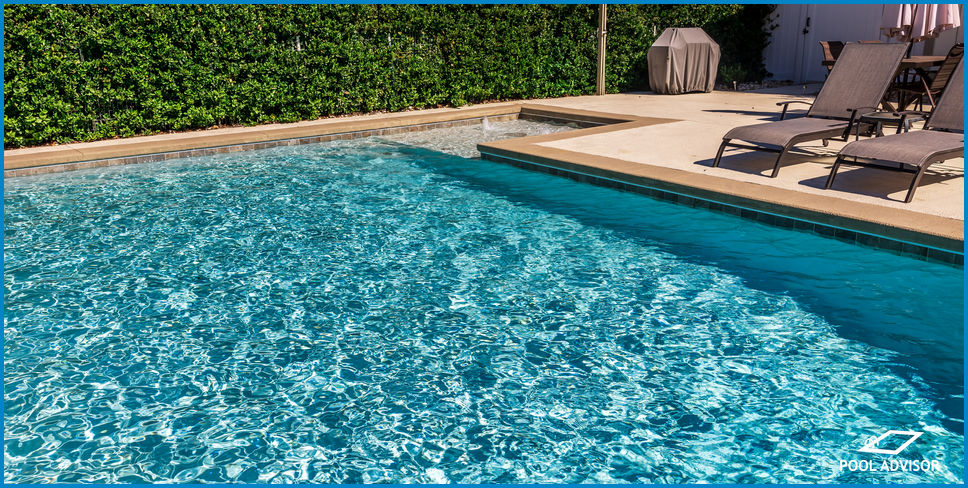
How Do Pool Leaks Affect Water Chemistry - Answered
If you’ve had a lot of trouble balancing your pool’s water chemistry in recent times, there may be a simple, yet malicious cause - the humble pool leak.
Most pool owners aren’t aware of this, but a leak in your pool can have a major impact on your water chemistry, making it virtually impossible to keep your chlorine, pH, alkalinity and everything else in the necessary ranges.
There’s two key ways that your pool leak can affect your water chemistry - dilution as you top up the water in the pool continuously, and ingress of soil and organic material into the pool.
Let’s take a look at each of them.
Dilution
As the water in your pool slowly (or not so slowly!) drains out of your pool, you will find yourself constantly topping it up with the garden hose. (As an aside, this should already be setting off alarm bells about a potential leak and the need to bring in a pool leak expert!)
While this keeps the water level where it should be, it results in virtually all elements of your water chemistry being diluted.
Let’s take a look at how the various elements are affected. Note that we are considering this from the point of view of someone refilling their pool with tap water rather than bore water, which has a very different composition.
Alkalinity
Fresh water has very low alkalinity, so as you add tap water to your pool, expect to see the alkalinity steadily decline, often to the point where you end up with low alkalinity.
A drop in alkalinity levels can make it difficult to maintain proper pH balance, leading to corrosion of pool surfaces and equipment.
Expect to see wild swings in pH once your alkalinity drops below the recommended minimum of about 80 ppm.
Calcium Hardness
Another important factor in pool water chemistry is calcium hardness, which refers to the amount of dissolved calcium in the water. If a pool has a leak, fresh water may be added to replace it, diluting the calcium hardness level.
Low calcium hardness levels can lead to etching, where your pool water becomes corrosive and starts actively dissolving your concrete surface in an attempt to rebalance the calcium content of the water.
If your pool surface is already damaged (and this is what is causing the leak), corrosive water further dissolving your pool surface can add insult to injury!
Chlorine
Pool leaks can also impact chlorine levels. Chlorine is used to sanitise pool water and keep it free of bacteria and other harmful contaminants.
If the pool is leaking and you add fresh water to top it up, the chlorine levels can drop, leading to poor water quality, bacteria and algae growth and the potential for infections or illness.
Expect your pool to turn green pretty quickly once your free chlorine disappears.
Cyanuric Acid
Stabiliser, or cyanuric acid, is also affected by dilution. As fresh water is added the cyanuric acid is diluted, which ultimately leads to ineffective chlorine sanitisation.
As the cyanuric acid drops below 30 ppm, your chlorine will be more and more easily degraded by the UV in sunlight, which will accelerate the rate at which it is lost.
This effect can stack with the direct dilution of chlorine discussed above, which can lead to very rapid chlorine loss.
Ingress Of Organic Material
The other way that a pool leak can impact your water chemistry is through the ingress of organic material through the leak.
If the leak is not that large, or if heavy rain causes the water table surrounding the pool to rise to a similar level as the pool, rather than water flowing out of the pool, soil and other organic material can flow into the pool.
This can affect the following elements of water chemistry.
Chlorine
As organic material enters your pool through the leak, the free chlorine in your water will attempt to oxidise it and maintain a sanitary environment.
Initially, this will be fine, but as more and more organic material enters your pool, the chlorine will quickly be depleted.
Once your free chlorine drops to 0 ppm, expect the pool to start turning green within a matter of hours. Algae multiply very rapidly, and it doesn’t take them long to take over an entire pool if the conditions are right!
Summary
A simple leak in your pool can have a surprisingly broad impact on your pool’s water chemistry. Even if your pool isn’t losing 1 inch of water a day, you can still see the effects.
As you are aware by now, a pool leak is not something that should be left alone. It will waste water, damage your pool and wreak havoc on your water chemistry.
If you have a leak, get in touch with a professional as soon as possible.

Louis
A chemical engineer by trade, Louis is committed to debunking myths in the pool industry by explaining the underlying chemistry and making it accessible to all.
